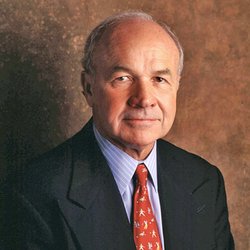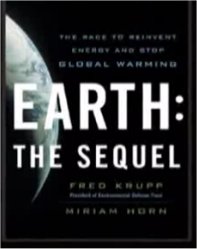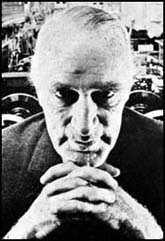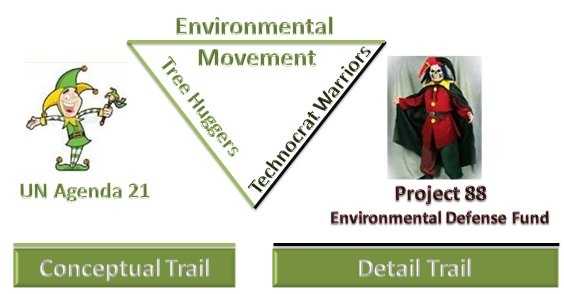|
Pool, Politics and War
By Other Means |
|
Since
1993 when the NAFTA agreement was signed into law, followed by the
legislation agreeing to the Uruguay Round of Trade that resulted in the
creation of the World Trade Organization, there has been a massive
extraction of wealth from this country.
The
extraction began more as a push than a pull. The incentives to take
the money and run began at least in 1992, if not before. But 1992 is a
good starting point because one can always traverse the timeline once a
point on the line has been established. Specifically this starting
point begins with the Energy Policy Act of 1992. Energy is the
lifeblood of any economy. The 1992 legislation was the beginning of a
national policy for choking the life out of it.
Energy Policy Act of 1992
H.R.
776 Became Public Law 102-486 on 10/24/1992, signed by Pres. George H.
W. Bush
|
| |
Isn’t it
interesting that a former oil man would sign legislation to choke off
the country’s energy supply in the name of energy efficiency? After
looking at this, it seems to me that American education should include
one full semester in the study of billiards as an intellectual as well
as a skillful pursuit.
|
|
 |
|
On December 1, 1988, there was an article in the New
York Times regarding President-Elect George H. W. Bush's meeting with
representatives of the leading environmental groups. Bush was
reading their lips - "protect the environment". But, there
was another group of environmentalists that Bush was to meet with for
their ideas on protecting the environment. The other group had "a
slightly different approach to attacking environment problems". The
following are excerpts from the article - and it's worth noting that
there is a lot of text in between these paragraphs (emphasis added):
|
| |
Prepared with private funds under the
sponsorship of Senator Timothy E. Wirth, Democrat of Colorado and
Senator John Heinz, Republican of Pennsylvania, the report being
readied for presentation to the President-elect, Project 88, will
focus on ways to use market forces to protect the environment.
Project 88 will argue that using private efforts to supplement and,
in some cases, substitute for the current regulatory process will
keep Federal costs down, the sponsors say. Message to Bush.
The Project 88 report of Senators Wirth and
Heinz will make 36 recommendations for using market forces to tackle
specific environmental problems. For example, the report calls for a
system of marketable pollution permits for reducing urban smog and
other air pollution.
The Environmental Defense Fund, one of the
few national environmental groups that did not take part in the
blueprint effort, chose to contribute to Project 88 instead.
Frederic D. Krupp, executive director of the fund, said his group
had chosen to work with Senators Wirth and Heinz because ''the
problems are getting worse so the solutions have to be better - more
powerful.
|
|
|
The Energy Policy Act of 1992 was introduced in the House of
Representatives by Rep. Philip R. Sharp (IN) on February 2, 1991.
It's 462 pages long which means that it was probably written between the
1988 to 1991 timeframe. Which probably means it's the product of
Project 88.
|
|
|
| |
|
The Making of a Market-Minded Environmentalist,
by Fred Krupp
Project 88 - Harnessing
Market Forces to protect the environment
See Page 5, Frederick Krupp
Project 88 - Incentives for
Action: Designing Market-Based Environmental Strategies
Crossing the Aisle to Cleaner Air: How the Bipartisan "Project 88"
Transformed Environmental Policy
|

Ken Lay, Chairman and CEO of Enron |
Enron Sought Global Warming Regulation, Not Free Markets
In
addition to all its political
lobbying and contributions,
Enron became a founding member
of the Pew Center on Global
Climate Change’s Business
Environmental Leadership
Council, a leading industry
front group pushing the Kyoto
agenda. Enron chairman Ken Lay
also served on the board of the
Heinz Center for Science,
Economics, and the Environment,
along with Fred Krupp of
Environmental Defense, and
former Alcoa CEO and current
Treasury Secretary Paul O’Neill.
Focus:
Connections - Ken Lay, Theresa
Heinz Kerry, Fred Krupp and EDF
Extended Discussion of John
Kerry's Enron Hypocrisy
Enron and the Green Seal
|
Senate Testimony, Fred L. Smith, President of the Competitive Enterprise
Institute, February 13, 2007
...Enron’s energy traders
also expected to make juicy commissions on the purchase and sale of
carbon credits and profits from creating the trading markets for
those credits. According to an internal Enron memo, Kyoto would “do
more to promote Enron’s business than almost any other regulatory
initiative outside of restructuring the energy and natural gas
industries in Europe and the United States.”
In addition to all its political lobbying and contributions,
Enron became a founding member of the Pew Center on Global Climate
Change’s Business Environmental Leadership Council, a leading
industry group pushing the Kyoto agenda. Enron chairman Ken Lay,
along with Fred Krupp of Environmental Defense, served on the
President’s Business Council for Sustainable Development, during the
Clinton Administration. They also served on the board of the
Heinz Center for Science, Economics, and the Environment, along with
former Alcoa CEO and Treasury Secretary Paul O’Neill. The sort of
rent-seeking we see now is nothing new. Yet we should recognize
that, had Enron’s lobbying efforts succeeded, the United States
would have ended up with a costly regulatory scheme designed to
redistribute wealth from the American people to politically powerful
special interests like Enron.
Ken Lay's Biography posted on the
Encylopedia of Business
The
Kyoto Conspiracy (Gore, Enron, Carbon Trading, Global Warming)
What about Fred? |
|

Fred Krupp
Environmental Defense Fund
|

Charlie Rose
Interview with Fred Krupp |
|
Or World War II: The
Sequel?

Alfred Krupp |
|
The
Infrastructure Conspiracy
Vicky Davis
December 7, 2011 |
|
|
|
|
|
|
|
|





